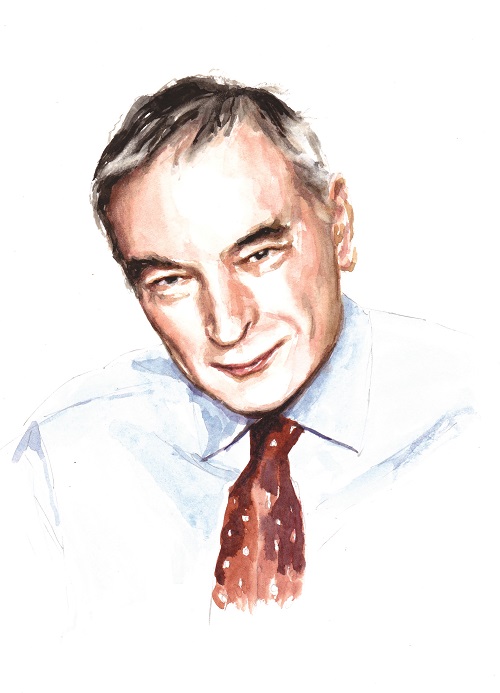-
1939: Countdown to War
1939: Countdown to War
The real war did not start until the following year, too late for Poland.
27 August 2009By Peter WilbyIn August 1914, Britain went to war with Germany amid patriotic fervour. A cabinet minister's private secretary recalled thousands "milling around" in Downing Street, "shouting and singing and bursting with cheers". In September 1939, the mood was different. Britain entered war with resignation, relieved that at last there would be no more doubts or agonies of conscience - Beatrice Webb felt "detached and calm" - but without enthusiasm.
For 20 years, all political effort had been dedicated to avoidance of war. The horrors of the Somme were far closer than the travails of the 1970s, still powerful symbols in our political discourse, are to us. The 1914-18 war had been the first for more than two centuries to impinge significantly on the British civilian masses and they knew only that the next one would be worse. Bombers were regarded with scarcely less apprehension than later generations would regard nuclear weapons.
Richard Overy's brief account of the week that led to war 70 years ago concentrates mainly on the political and diplomatic manoeuvrings. He is not a flashy writer, but this is a tight, fluent narrative enhanced by quirky but telling details: for example, when defence regulations were submitted to parliament, the Liberals objected to traitors being shot rather than hanged; and when the American journalist William Shirer visited the British embassy in Berlin just after the ultimatum to Germany expired, he found the staff "talking about dogs and stuff".
The popular historical view is that the prime minister, Neville Chamberlain, and his circle remained appeasers to the end. They had guaranteed Poland's independence - most recently on 25 August - but still looked for a way out even as German troops invaded. They were forced into war by patriotic and honourable MPs, inspired by a Commons speech from the acting Labour leader Arthur Greenwood (Clement Attlee was recovering from an operation). It was heralded by the cry "Speak for England, Arthur!" from Leo Amery on the Conservative back benches.
Overy rejects the popular view. Chamberlain, he argues, never intended to abandon his commitment to Poland. He still wanted peace but had given up on appeasement in March, when Hitler occupied Czechoslovakia in what Chamberlain saw as a personal betrayal. He now hoped deterrence would work instead. As always, the intelligence material was dissected to find what politicians wanted to find. Hitler intended war to begin on 26 August, just after the Nazi-Soviet Pact ensured no opposition from the east. But he hesitated, partly because the Anglo-Polish treaty the previous day came as a shock; perhaps he would hesitate again. The German economy, some reports suggested, was in difficulties. Hitler faced political threats and even food riots. In the fantasy world of British intelligence, Hermann Goering emerged as the unlikely leader of a prospective coup, bringing a pro-peace faction to power.
The optimism wasn't entirely misplaced. Hitler wanted a small war, not a big one. He had, as Overy says, no "plan or blueprint for world conquest". He invaded Poland in the belief that the western powers wouldn't act, a view for which he, too, had some justification, given a British and French abhorrence of war and unofficial peace feelers from the Swedish businessman Birger Dahlerus, acting as a freelance diplomat.
Overy argues the case convincingly, deploying ample evidence. There is, however, a degree of hair-splitting and speculation about it. We cannot know there would not have been another Munich if Hitler had invited Chamberlain to another summit. But Hitler, too, was less inclined to make deals than he was a year earlier; Munich, a source of shame to the British, was also a loss of face for Hitler. He wanted the Germans to see him as a warlord, and the heavily armed Poles at least offered the prospect of serious resistance. Chamberlain reacted to changed circumstances. Lingering Tory support for appeasement melted after the Nazi-Soviet Pact, which dashed hopes that Hitler could be unleashed against the Bolshevik menace.
What we do know, and Overy does not dispute, is that Chamberlain had no intention of helping the Poles repel the German military. The British and French did not move troops to attack from the west. Nor did they bomb German cities or even airfields; when Amery suggested dropping incendiary bombs on the Black Forest, the air secretary, Kingsley Wood, protested that it was private property. The RAF dropped a few thousand leaflets instead. Hitler thought that, at worst, the British and French would fight a Kartoffelkrieg or "potato war" - an economic blockade. He was right and, as Germany now had access to raw materials through the Soviet Union, the blockade was largely ineffective.
The real war did not start until the following year, too late for Poland. As Overy puts it, "Poland was betrayed by war just as Czechoslovakia was betrayed by peace." Indeed, the betrayal was in some respects greater, because Polish cities suffered far greater damage and the people more cruelty and loss.
1939: Countdown to War
Richard Overy
Allen Lane, 160pp, £12.99
Peter Wilby's biography of Anthony Eden is published by Haus (£9.99) Tags : WW2
Tags : WW2
-
Commentaires
Keep calm and study British history

